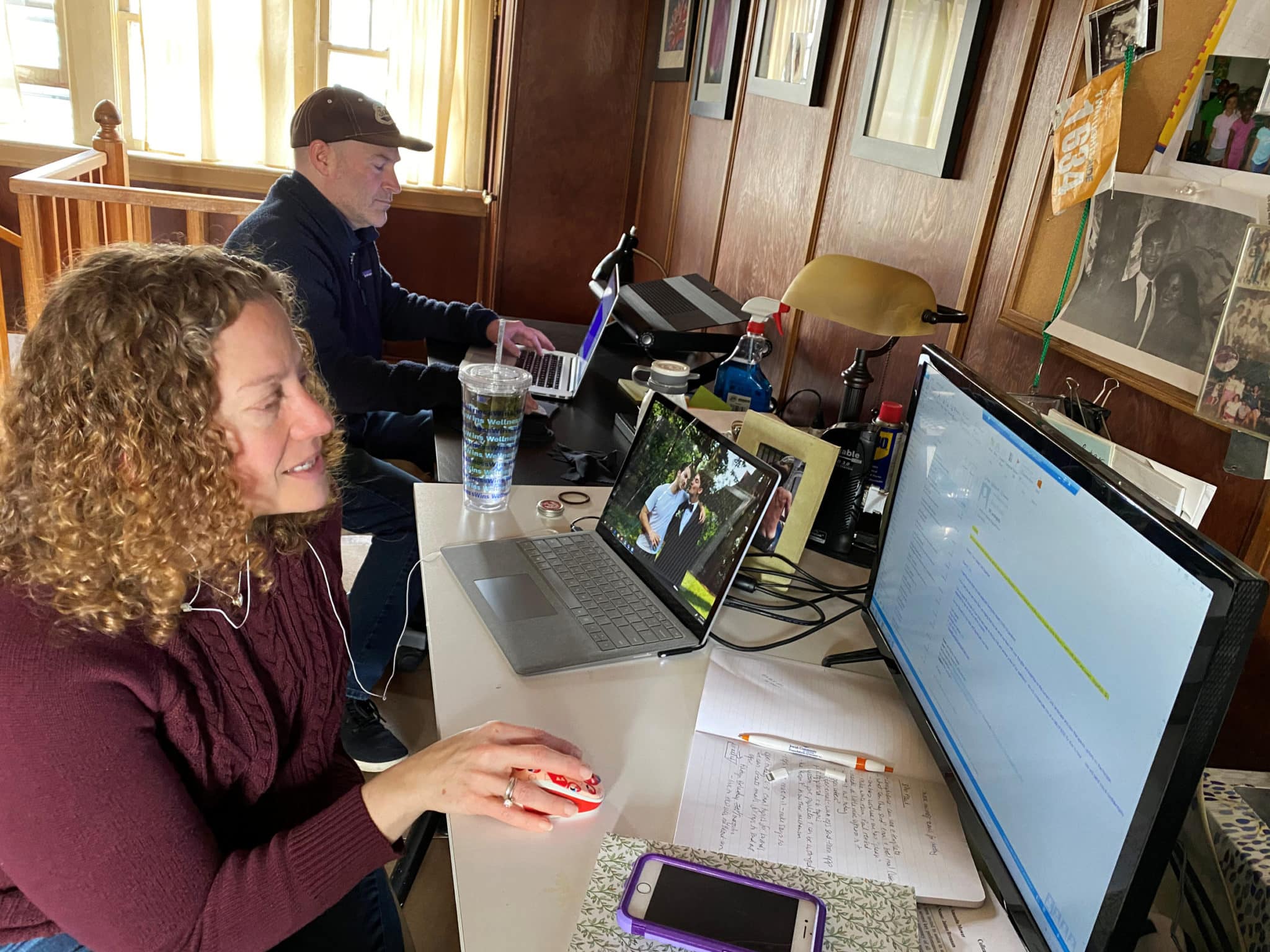
In a fast-paced world, our attention is a rare and valuable commodity. Is your marriage suffering from attention deficit?
True confession: some evenings you’ll find us sitting on the couch with the TV playing and us both on our laptops or other individual devices. We know; it’s not particularly noble and we have a sense of unease with it.
But truly, movies and TV simply don’t seem to hold our full attention anymore. It feels scandalously indulgent to give our exclusive attention to the box. So, while the box is playing, we’re often clearing emails or drafting articles like this one.
And at 9pm, somehow if feels less like work if the TV is on, even though we are not really paying that much attention to it.
Is this normal? If our observations of our adult children and friends is anything to go by: yep!
Scan the café next time you’re there and take a count of how many people are giving their full attention to the person or people with whom they are at table. Not many. If we weren’t so conscious of making the most of our time together, we could be one of them.
A Rare Commodity
We’ve always been strict about the TV being off during dinner so that we could foster family time and capture the educational, emotional and social benefits of family meals. After dinner and washing up though? It’s often a free-for-all with each member of our household dispersing to pursue individual distractions.
Whether it’s families, couples or friends, attention – the full, undivided kind – is a rare commodity.
We had one of those heart-piercing ‘mea culpa’ moments a few years ago when we read the testimony of a mother with a pre-schooler. She regularly took her child to the playground to play while she checked emails and caught up on calls.
This day, she undertook an experiment. She determined NOT to look at or use her phone but to simply observe her child from the park bench.
In the course of an hour, her child looked up to see if she was watching over 50 times. That’s about once a minute. The child looked for, and received, the affirmation of her mother’s attention repeatedly during this period.
If the mother had followed her usual practice, we wonder how many times the child would have looked up. Would there have been over fifty occasions of a message of ‘you’re not as important as my emails/social media?’ Or would the child have simply given up after the first ten or twenty attempts.

Attention Deficit and Disconnection
Marriage, and family life more generally, suffers from chronic, self-inflicted ADAD – Attention Deficit And Disconnection – to play on the well-known psychological condition. Attention is the currency of connection. Without it, our relationships deteriorate and eventually we feel like strangers to each other.
Earlier this week, we were listening to the Matt Fradd interview with Catholic philosopher, Dr Peter Kreeft. At one point, their attention turned to a discussion of the time Peter had met Mother Teresa of Kolkata. Though it was only a minute or less, he recounted how time stood still in the total attention of this saintly woman.
Others have said the same thing about encounters with other saints. Something about their life of holiness enables them to be so self-forgetful that they can give their total attention to the person in front of them.
No doubt, this enigmatic quality also marked Jesus’ ministry with sinners and drew them magnetically to him.
But is this a quality only for saints? We don’t think so.
Being Present to the Present
When we give our full attention to someone, it suspends time for us. Our mind does not drift into the past or wander into the future but stays suspended in the glorious present where we are fully attentive in all our conscious awareness.
To be able to give this gift to another, is of immense value. It is the gift of precious personhood and is profoundly affirming and bonding.
So why do we seem to have so little of it in our relationships?
Here’s our theory: our lives are so over-stimulated, many of us don’t know how to be still the presence of ourselves, let alone abide in the presence of each other. We’re so busy distracting ourselves from our anxiety and disappointments, we barely know ourselves.
To be fully present to another, we have to detox from busyness; from the constant distraction of incessant activity and social approval hunger so that we can connect with our interior life first.
For only once we are present to ourselves can we give the gift of our undivided, total attention to our loved ones.
